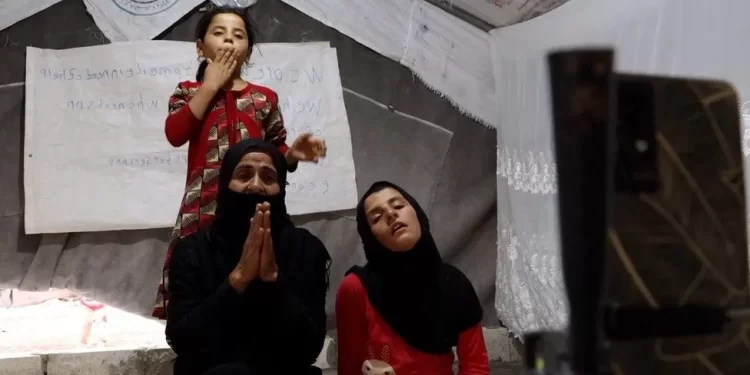TikTok is raising its minimum age for livestreaming from 16 to 18 from next month.
A BBC News investigation found hundreds of accounts going live from Syrian refugee camps, with children begging for donations.
Some were receiving up to $1,000 (£900) an hour – but when they withdrew the cash, TikTok had taken up to 70%.
In future, only adults would be able to “send virtual gifts or access monetisation features”, TikTok said.
And, “in the coming weeks”, it would let users run adult-only livestreams.
It is unclear how TikTok will enforce these age restrictions, however.
Meta, which owns Facebook and Instagram, and Google, which owns YouTube, have a minimum livestreaming age of 13 and already allow users to age-restrict content they upload.
Digital gifts
For five months, the BBC’s Global Disinformation Unit, BBC Arabic and BBC Eye Investigations followed more than 300 TikTok accounts livestreaming from north-west Syria.
TikTok’s rules say you must not directly solicit for gifts and must “prevent the harm, endangerment or exploitation” of minors on the platform.
When News BBC used the in-app system to report 30 accounts featuring children begging, TikTok said there had been no violation of its policies in any of the cases. After BBC News contacted TikTok directly for comment, the company banned all of the accounts.
TikTok said this type of content was not allowed on its platform and its commission from digital gifts was significantly less than 70% but still has not confirmed the exact amount.
BBC News investigates a new trend on TikTok – hundreds of families in camps for displaced people in Syria, begging for gifts on TikTok livestreams.
TikTok is the world’s fastest-growing social media app and has been downloaded more than 3.9 billion times. It has made more than $6.2bn in gross revenue from in-app spending since its launch in 2017, according to analytics company Sensor Tower.










Discussion about this post